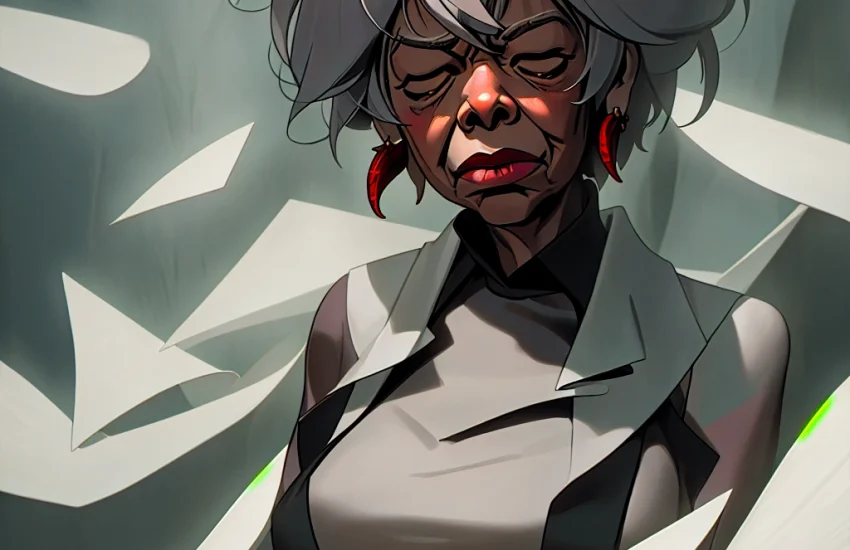The Unspoken Burden: Exploring the Agony of the Untold Story
Maya Angelou’s poignant declaration, “There is no greater agony than bearing an untold story inside you,” resonates deeply with the human condition. It speaks to the fundamental need for expression, the weight of suppressed narratives, and the profound consequences of silencing oneself. This article delves into the multifaceted implications of this statement, exploring the psychological, social, and cultural dimensions of untold stories, examining their impact on individual well-being and societal progress.
The Psychological Toll of Unexpressed Narratives:
At its core, Angelou’s statement highlights the intrinsic human drive for self-expression. We are storytelling creatures, constantly constructing narratives to understand ourselves and the world around us. When these narratives are stifled, they can manifest as a deep psychological burden. Unexpressed emotions, traumatic experiences, and suppressed truths become internalized, festering beneath the surface and impacting mental and physical health.
The act of sharing our stories, whether through verbal communication, writing, art, or other creative outlets, allows us to process experiences, integrate them into our identity, and ultimately find meaning and closure. Conversely, the suppression of these narratives can lead to a range of psychological issues, including:
- Increased anxiety and depression: The weight of untold stories can manifest as chronic anxiety and depression. The constant internal struggle to suppress and manage these narratives takes a toll on mental well-being.
- Post-traumatic stress disorder (PTSD): Traumatic experiences, particularly those that remain unprocessed and unspoken, can contribute to the development of PTSD. Sharing the trauma narrative, in a safe and supportive environment, is often a crucial step in the healing process.
- Somatic symptoms: Unexpressed emotions can manifest as physical symptoms, including chronic pain, fatigue, and digestive issues. The mind-body connection is undeniable, and unresolved psychological distress can significantly impact physical health.
- Difficulty forming healthy relationships: The inability to express oneself authentically can hinder the development of deep and meaningful connections. Sharing personal narratives fosters vulnerability and intimacy, building the foundation for strong relationships.
- Low self-esteem and feelings of shame: Unexpressed stories, especially those related to perceived failures or shameful experiences, can erode self-esteem and contribute to feelings of worthlessness.
Social and Cultural Implications of Silenced Voices:
The silencing of individual stories extends beyond the personal realm, impacting the social and cultural fabric of communities and societies. When certain narratives are systematically suppressed, marginalized groups are denied agency and the opportunity to shape their own identities.
- Perpetuation of stigma and discrimination: Societal taboos surrounding certain topics, such as mental illness, sexual assault, or LGBTQ+ experiences, create an environment where individuals are afraid to share their stories. This silence perpetuates stigma and reinforces discriminatory attitudes.
- Erosion of historical accuracy and understanding: The suppression of historical narratives, particularly those of marginalized communities, can distort our understanding of the past. Uncovering and sharing these untold stories is crucial for achieving a more complete and accurate historical record.
- Limited social progress: Social change often begins with individual stories. When individuals share their experiences of injustice, inequality, or oppression, they raise awareness and inspire collective action. Silencing these voices hinders social progress and perpetuates existing power structures.
- Loss of cultural richness and diversity: Every individual story contributes to the rich tapestry of human experience. When certain narratives are suppressed, we lose valuable insights into different cultures, perspectives, and ways of life.
Breaking the Silence: Pathways to Expression and Healing:
Recognizing the profound agony of the untold story is the first step towards creating spaces where individuals feel safe and empowered to share their narratives. Several avenues can facilitate this process:
- Therapy and counseling: Mental health professionals provide a safe and supportive environment for individuals to explore and process their experiences. Therapeutic interventions can help individuals overcome the barriers to sharing their stories and find healing.
- Support groups: Connecting with others who have shared similar experiences can be incredibly validating and empowering. Support groups offer a sense of community and reduce feelings of isolation.
- Creative expression: Art, music, writing, and other forms of creative expression provide powerful outlets for sharing untold stories. These mediums can bypass the limitations of language and allow individuals to express themselves in unique and meaningful ways.
- Journaling and reflective writing: Private journaling can be a powerful tool for self-reflection and processing emotions. Writing down one’s experiences can help individuals gain clarity and perspective.
- Advocacy and activism: Sharing personal narratives can be a powerful form of advocacy. By speaking out about injustice and inequality, individuals can raise awareness and inspire social change.
The Power of Witnessing and Listening:
While sharing one’s story is a crucial step towards healing, the act of witnessing and listening is equally important. Creating a culture of empathy and understanding requires us to actively listen to the stories of others, without judgment or interruption. This act of witnessing validates the speaker’s experience and reinforces the importance of their narrative.
Conclusion:
Maya Angelou’s words serve as a powerful reminder of the profound human need for expression. The untold story carries a heavy burden, impacting individual well-being and hindering social progress. By creating spaces where individuals feel safe and empowered to share their narratives, we can foster healing, promote understanding, and build a more just and equitable world. The agony of silence can be transformed into the power of shared experience, enriching both individual lives and the collective human narrative. It is in the sharing, the witnessing, and the honoring of these stories that we truly come to understand ourselves and the world around us. The untold story, while agonizing to bear, holds within it the potential for profound individual and societal transformation. Embracing the vulnerability of sharing and the responsibility of listening is essential to unlocking this potential and creating a world where every voice has the opportunity to be heard.
